In many cases, the Leptospirosis the course of a benign fever. However, severe forms of the disease can prove life-threatening.
What is leptospirosis?

© Erica Guilane-Nachez - stock.adobe.com
In the Leptospirosis it is an infectious disease caused by bacteria. Depending on the pathogen that caused leptospirosis in the affected person, different forms of the disease can be distinguished; Worth mentioning here are, for example, Weil's disease or field fever.
Typical symptoms of the first phase of a (mostly two-phase) leptospirosis are similar to those of the flu: patients suffer from muscle pain, headaches and a high fever. Other possible symptoms include a rash or conjunctivitis. As part of a second phase of the disease, in addition to renewed fever, for example, inflammations of the kidneys, liver and / or heart muscle can occur.
The bacterial infectious disease is widespread worldwide; Within Germany, around 40 people are affected by a new illness every year.
causes
The Leptospirosis from an infection with the bacterium Leptospira interrogans (a screw-shaped bacterium belonging to the genus Leptospira). The bacterium is usually transmitted to humans via body fluids (such as saliva, blood or urine) from infected rodents; In rare cases, transmission of leptospirosis by mammals is also possible.
The fluids infected with the bacterium Leptospira interrogans get into the ground or water, for example. In the event of human contact with the relevant substances, the bacterium causing leptospirosis can penetrate into the organism of the person concerned via mucous membranes or skin injuries.
Infected drops of secretion can also be absorbed through the breath, which subsequently lead to possible leptospirosis. Because of the transmission route, workers in fields or sewers as well as water sports enthusiasts are particularly at risk of contracting leptospirosis.
Symptoms, ailments & signs
Leptospirosis can manifest itself through very different symptoms. Some people feel only slightly unwell after being infected with the causative bacteria. In other cases, severe and, in extreme cases, even life-threatening complications that require prompt treatment can arise. The acute phase of the disease lasts around a week.
As the bacteria are carried into the bloodstream, a fever develops, which can last for three to eight days. This can be accompanied by muscle pain, headache and joint pain. The painful stiffening of the neck is typical. In addition, conjunctivitis can develop, which is extremely evident in the form of noticeable swelling and reddening of the conjunctiva.
The heartbeat is reduced and the blood pressure is low. A rash can also occur. In the immune phase, there may be signs of an attack on the internal organs. Depending on which organ is affected, jaundice, cough, shortness of breath or a kidney inflammation set in. If the disease is severe, meningitis or myocarditis may develop after a few days. The severe symptoms appear in the second week of the illness and quickly develop into a life-threatening condition.
Diagnosis & course
During the first phase of the disease, the pathogens can develop the Leptospirosis or antibodies formed can be detected, for example with the aid of a blood sample. Since the bacterium Leptospira interrogans can often no longer be identified in the second phase of the disease, diagnosis here is mostly based exclusively on the presence of antibodies in the organism of a person affected.
After a possible incubation period (the period between infection and the first symptoms of leptospirosis) of up to 30 days, the disease usually sets in suddenly; the first phase of the disease lasts for about 3 - 7 days and is then followed by a short, symptom-free time interval. The second phase of the disease that now follows can last up to 30 days.
Mild forms of leptospirosis usually take a benign course. Field fever, for example, is one of the comparatively mild forms of disease. The course of Weil's disease is often more severe; here the disease can even lead to the death of a patient.
Complications
With leptospirosis, those affected usually have the usual symptoms and symptoms of the flu or cold. This leads to severe chills and a high fever. In most cases, the patients also suffer from headaches and aching limbs. The resilience of the person concerned drops significantly and the quality of life is reduced.
Leptospirosis also often leads to conjunctivitis, which in the worst case can lead to complete blindness. It can also cause severe pain in the shins or calves. In the worst case, leptospirosis can lead to death if the internal organs are also damaged.
Treatment of this disease is carried out with the help of antibiotics and, as a rule, does not show any particular complications. In most cases, the disease progresses positively and there are no other complaints. Other drugs that can lower a fever are also used in the treatment. Successful treatment does not reduce the patient's life expectancy.
When should you go to the doctor?
If you notice abnormally high fever, chills, headache, body aches, and other symptoms that appear to occur without cause, you should speak to your doctor. It may be caused by leptospirosis or some other serious illness that requires clarification. If there are gastrointestinal complaints, coughing or sore throat, medical advice is also required. Signs of jaundice indicate Weil's disease. Liver dysfunction, pain in the right upper abdomen and blood clotting disorders also indicate an icteric course, which must always be clarified by a doctor.
Those affected should consult a doctor if the symptoms mentioned persist for more than a few days. If the symptoms suddenly get worse, you shouldn't hesitate to see a doctor. The right contact person is the liver specialist. In addition, other internists and alternative doctors can be called in, depending on the type, severity and cause of the complaints. Patients with previous illnesses should speak to the responsible doctor if they have unusual symptoms.
Treatment & Therapy
The type of medical treatment one receives Leptospirosis depends, among other things, on the phase of the illness and individual symptoms.
During the first 5 days of an existing leptospirosis, the disease is usually fought with the help of antibiotics; which antibiotic active ingredients are used in individual cases depends, for example, on the assessment of the attending physician and the patient's constitution.
If leptospirosis lasts longer than 5 days, antibiotic treatment usually no longer has any effect. This is due to the fact that symptoms of the second phase of the disease of leptospirosis are usually no longer due to the action of the causative bacterium; rather, the symptoms are a consequence of the body's own immune response to the bacterium Leptospira interrogans.
In the second phase of leptospirosis, sensible therapeutic measures therefore usually focus on combating individual symptoms: While high fever can be combated with anti-fever medication, other possible treatment measures focus on, for example, an adequate supply of fluids and the repair of any damage to organs.
You can find your medication here
➔ Medicines for fever and chillsOutlook & forecast
The prognosis of leptospirosis is linked to the time of diagnosis and the course of the disease. If left untreated, a life-threatening condition develops. The pathogens can spread unhindered in the organism and weaken the body. The internal organs are destroyed and ultimately the functioning of the organism fails.
If a doctor's visit is initiated as soon as the first complaint occurs, therapeutic measures can be initiated immediately. The administration of medication leads to a regression of the symptoms. The causative pathogen is prevented from spreading by the ingredients of the preparations and suddenly dies. If there is no damage to the organs, the prognosis is favorable and the patient can be discharged from therapy after a few weeks as recovered.
If treatment takes place at an advanced stage of the disease, the course of the disease worsens considerably. The activity of the internal organs is affected and irreparable damage can occur in severe cases. A fatal course of the disease despite all efforts is possible. For some patients, ultimately, only an organ transplant can help prolong life. There are numerous complications and challenges associated with this treatment. In addition, a stable immune system is essential for a transplant, otherwise the donor organ will be rejected.
prevention
There is one thing to prevent Leptospirosis for example, by avoiding stays in waters that have not been declared by public authorities as safe bathing places. Work-related leptospirosis can be counteracted by wearing appropriate protective clothing. In order to avoid possible infection by pets, it is possible to vaccinate animals if there is a risk.
Aftercare
Follow-up care is very important if you have a bacterial infection like leptospirosis. On the one hand, it must be prevented that the infection flares up again and then possibly leads to complications. One example is heart involvement after a flu-like infection. On the other hand, it is also about regenerating the body weakened by a bacterial infection and thus regenerating it and making it resilient for the demands of everyday life.
The bacterial infection can affect different areas such as the airways and gastrointestinal tract. Therefore, the aftercare measures are always slightly different. However, strengthening the immune system is almost always an important factor in follow-up care.
The defense against renewed bacterial infections and the strengthening of the general condition is possible with a whole range of measures. This includes a healthy diet with sufficient amounts of water to drink, plenty of sleep and enough exercise. During activities and sports, however, it is important that the patient no longer has a fever.
It is not uncommon for antibiotics to be prescribed against bacterial infections, which can have side effects such as gastrointestinal problems or fungal infections. Here, aftercare also means rebuilding the intestinal or vaginal flora in the event of such infections. Nicotine and alcohol weaken the immune system. It is good if the patient does not use it during regeneration and aftercare Those affected should also consult a doctor regularly to check the medication settings and possible side effects and, in the event of an intolerance, arrange a change.
You can do that yourself
Antibiotic therapy is required if leptospirosis has been diagnosed. Patients are recommended to rest and to rest in bed. Especially in the first few days after treatment, the immune system must be protected from major stress, because a cold can lead to a superinfection, which would have serious consequences for the body. If the course is mild, the patient can easily return to work and exercise after a week.
If the course is severe, treatment in the clinic is required. Since leptospirosis does not necessarily mean an outpatient stay, appropriate precautionary measures must be taken for a longer stay in hospital. After the treatment, rest again. The administration of cefotaxime, doxycycline and other antibiotics places considerable stress on the body and therefore requires good follow-up care by the patient and doctor.
After the leptospirosis has subsided, further check-ups in the doctor's office are indicated. In addition, the cause of the disease should be determined and the triggers avoided in the future. Pet owners who suspect their pet may be infected should consult a veterinarian and have the symptoms assessed before the disease breaks out or even spreads to humans.

.jpg)


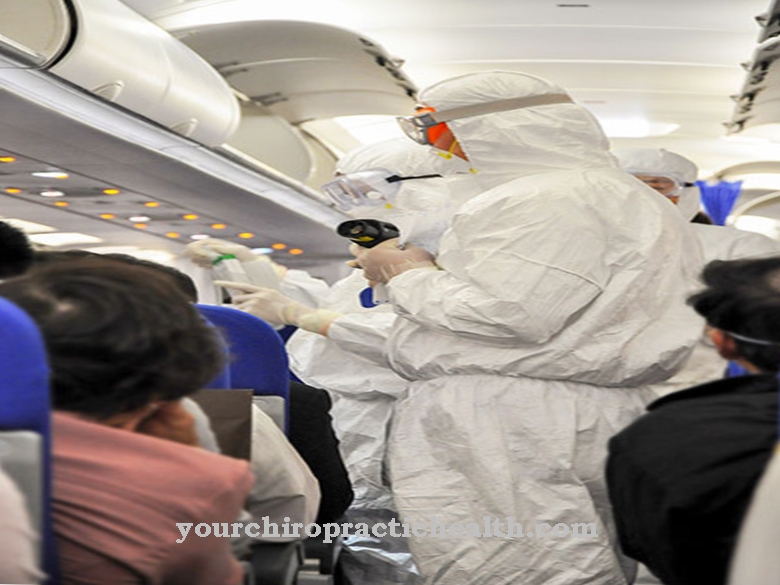




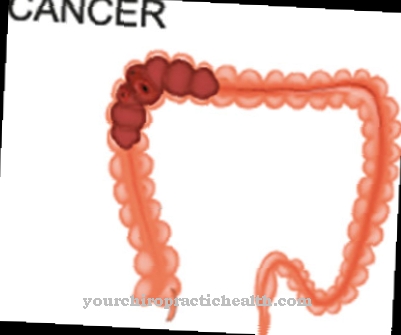
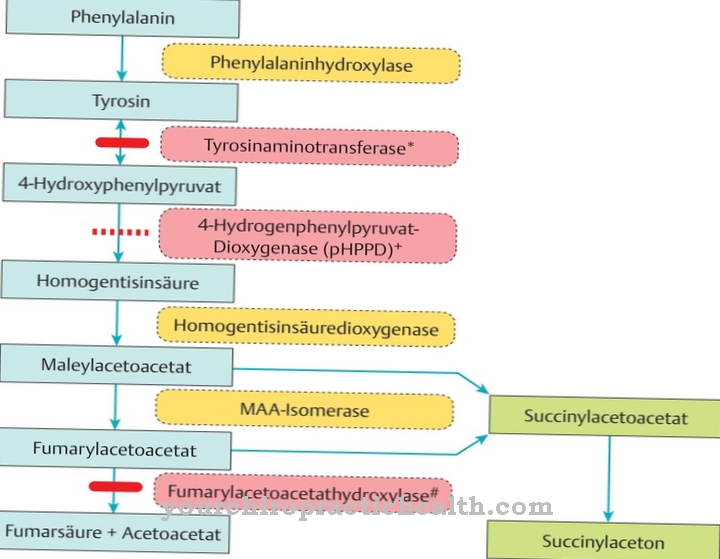

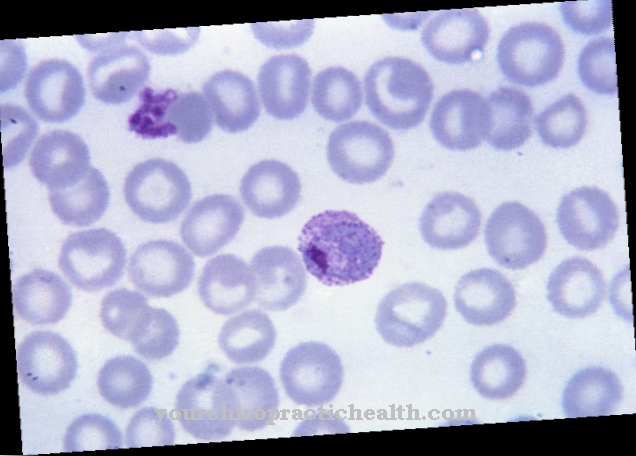











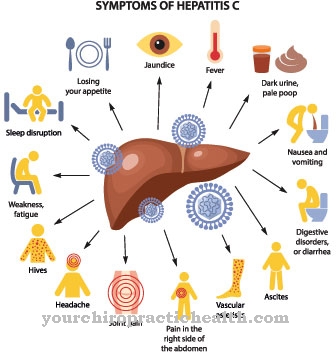
.jpg)


